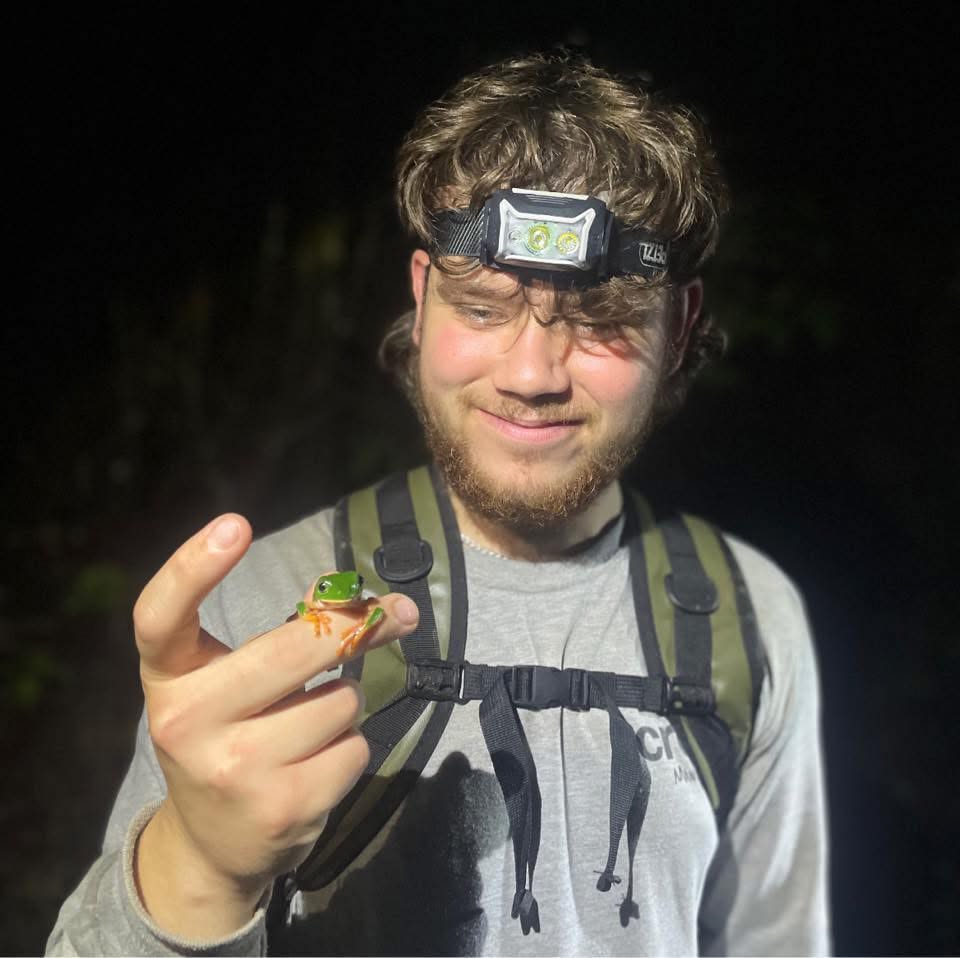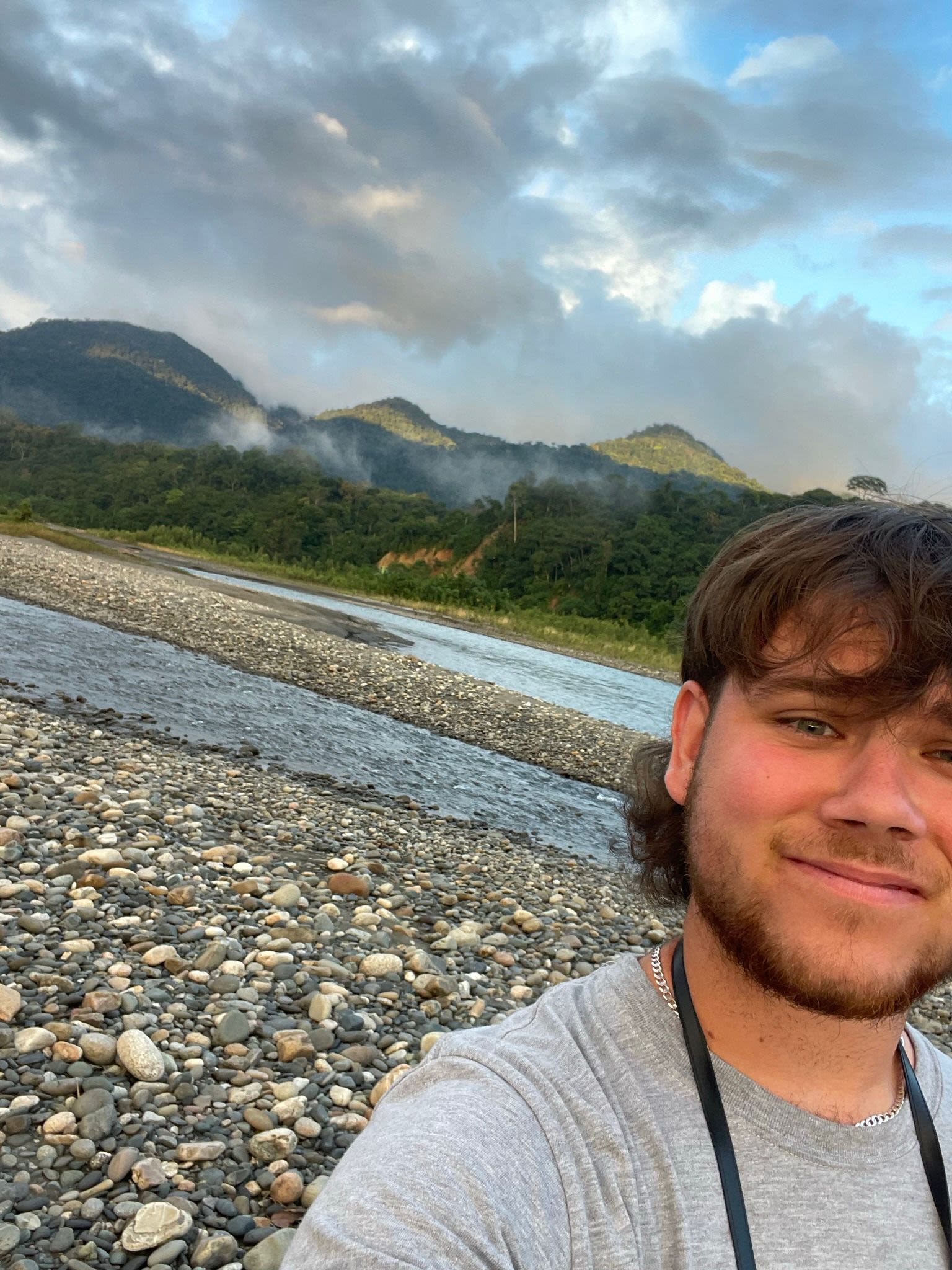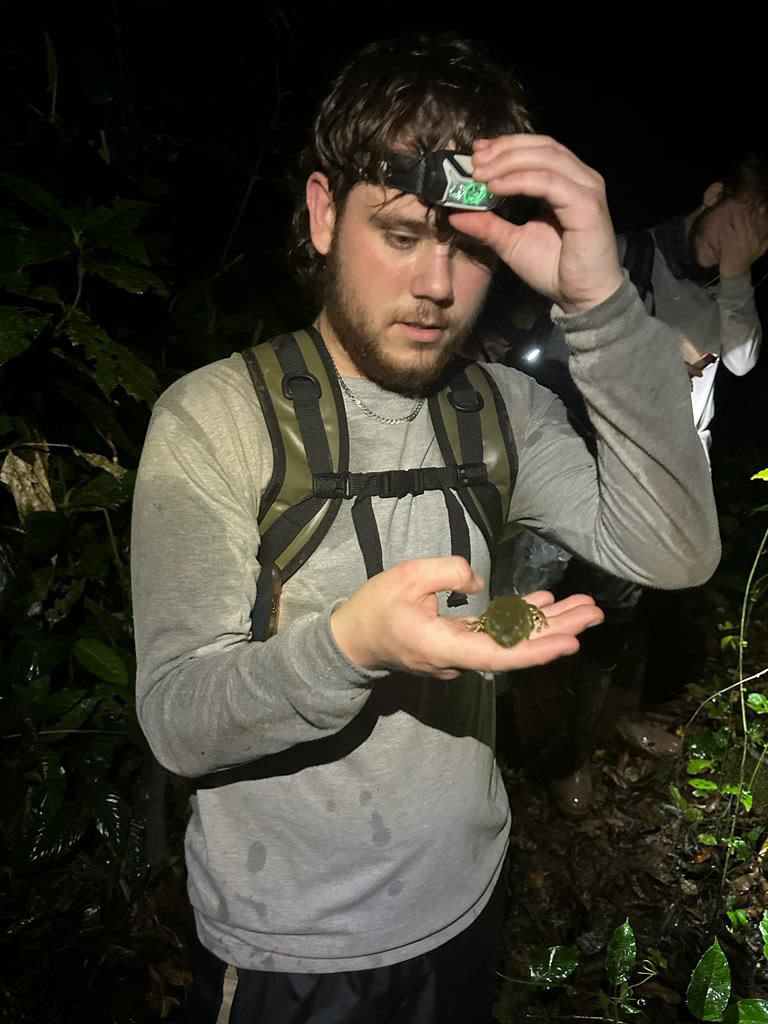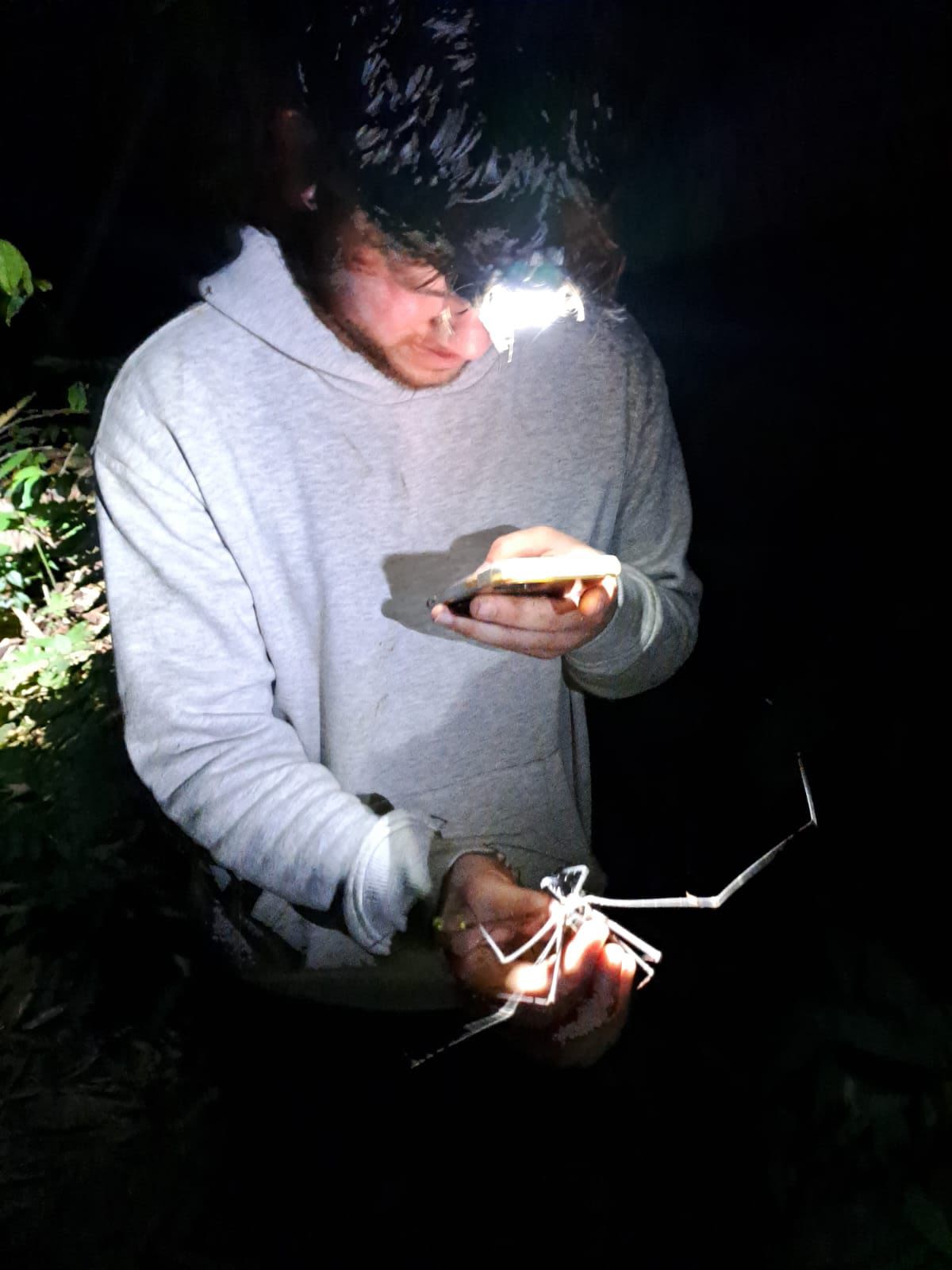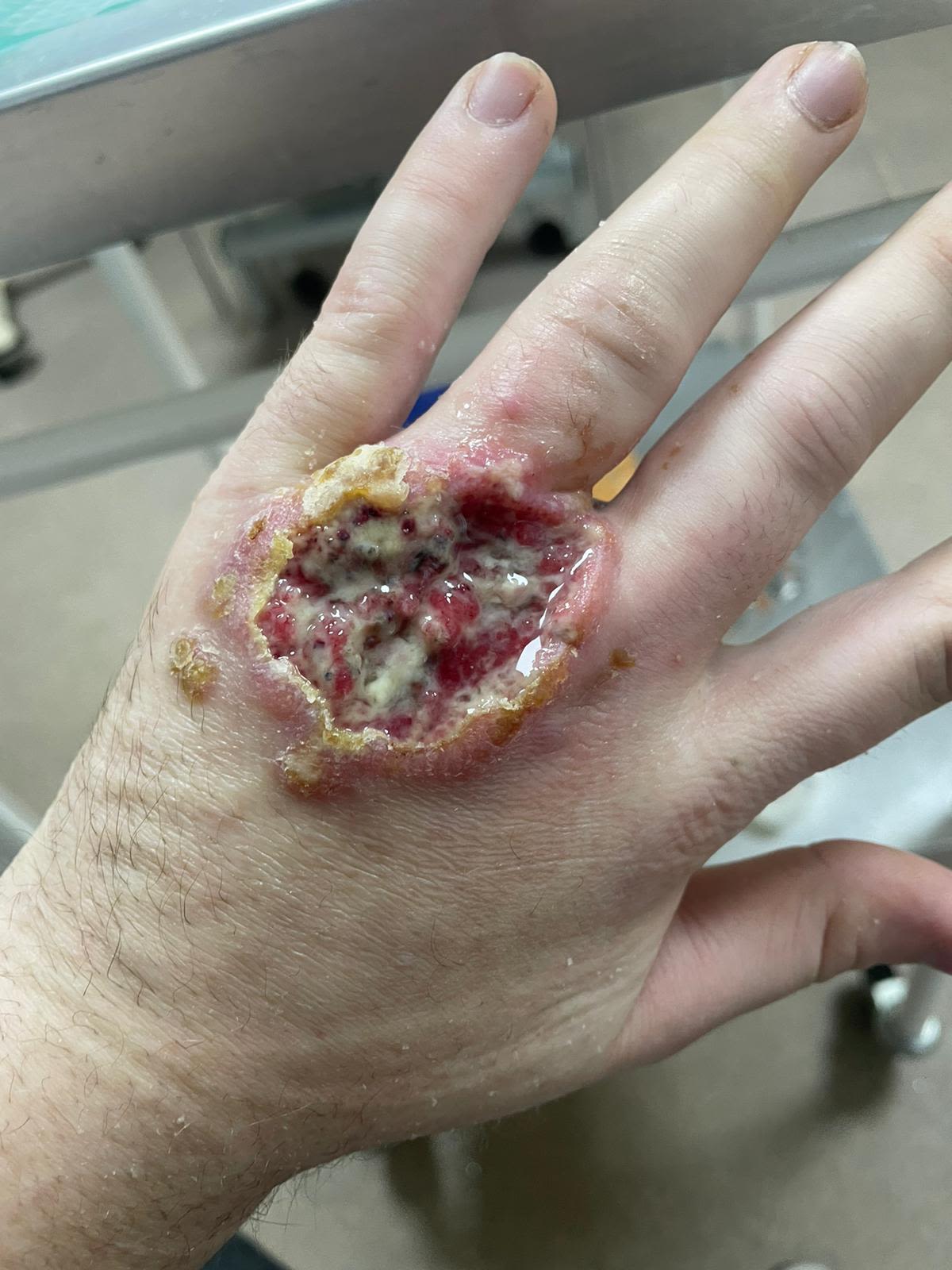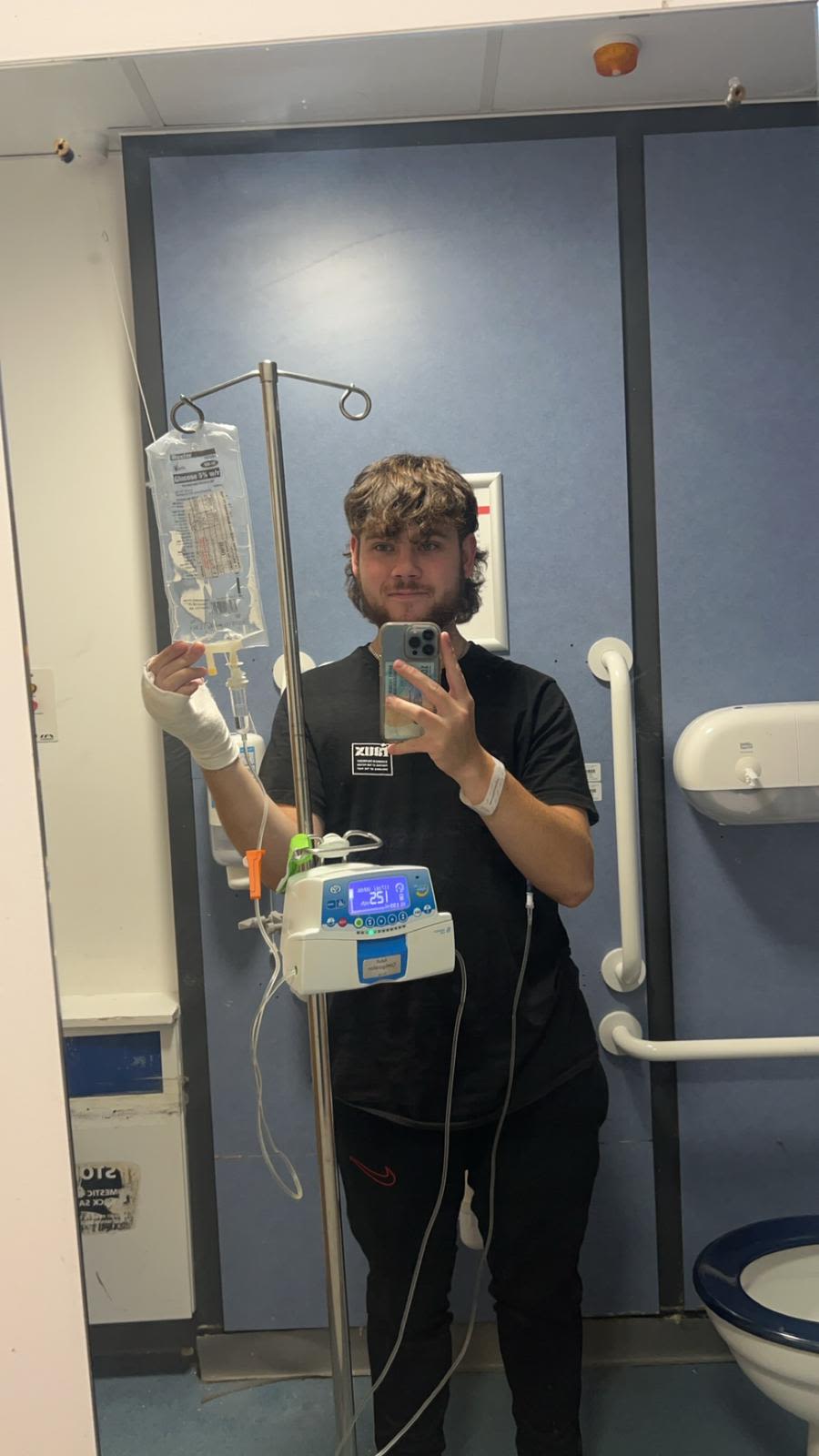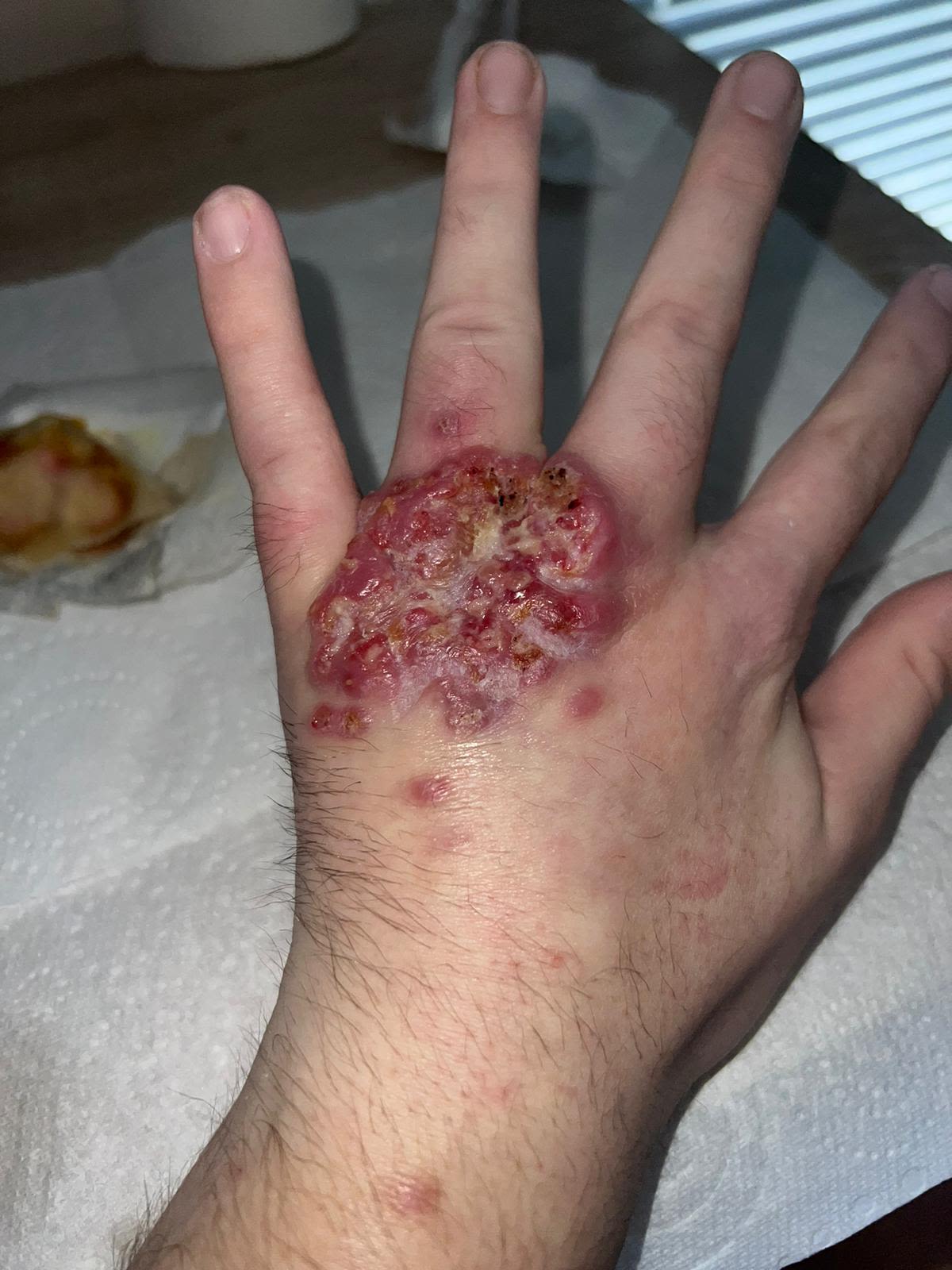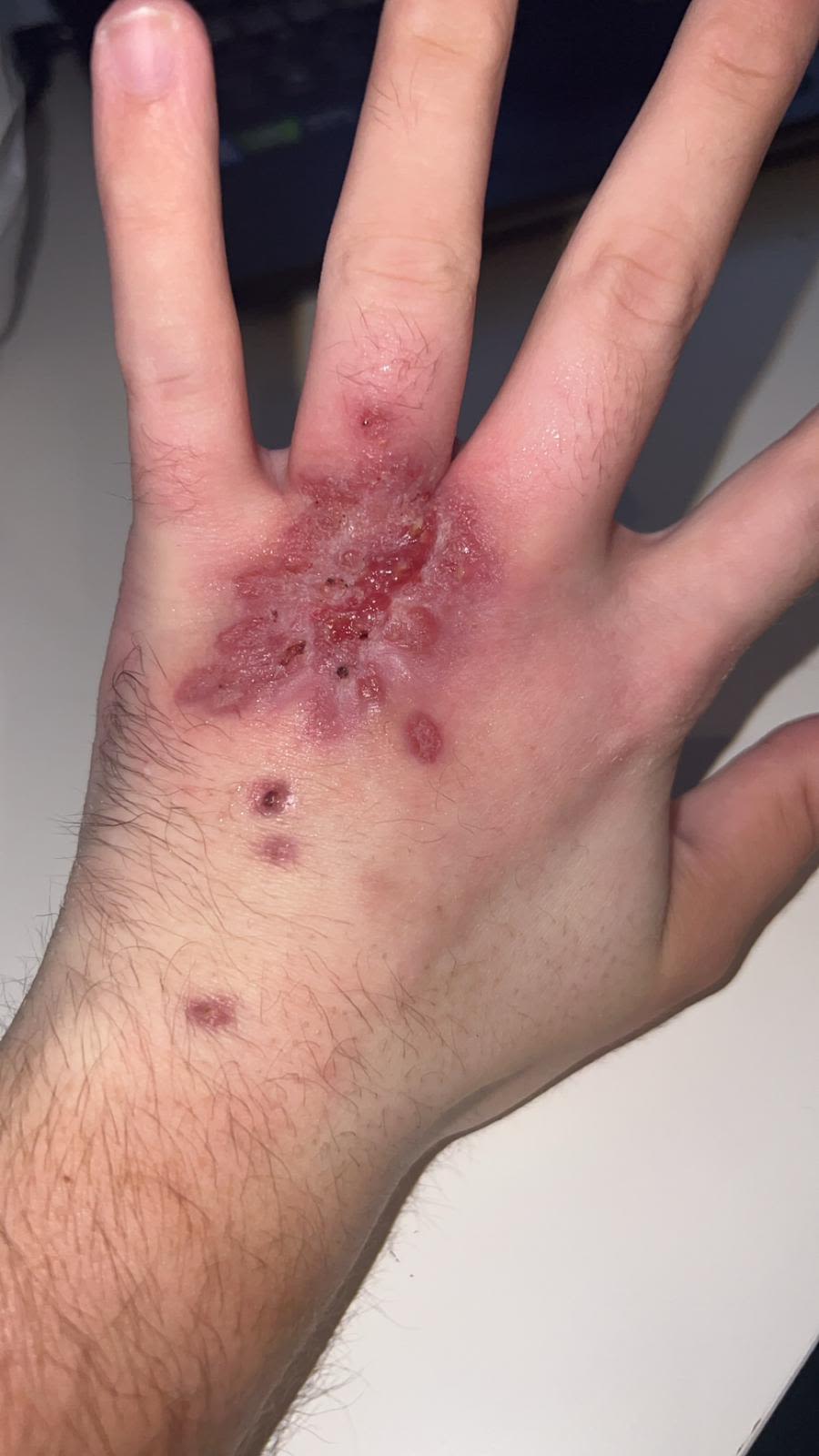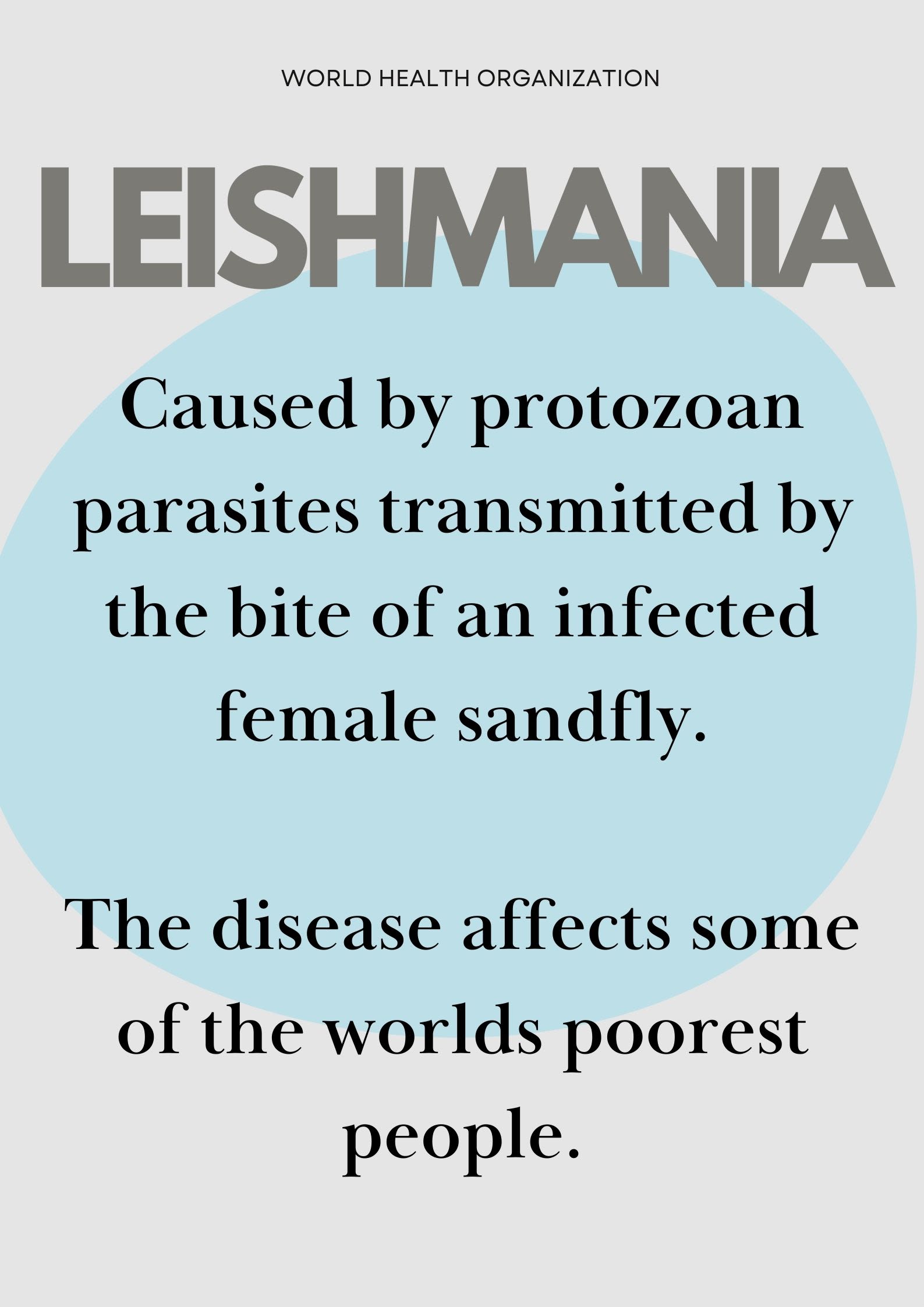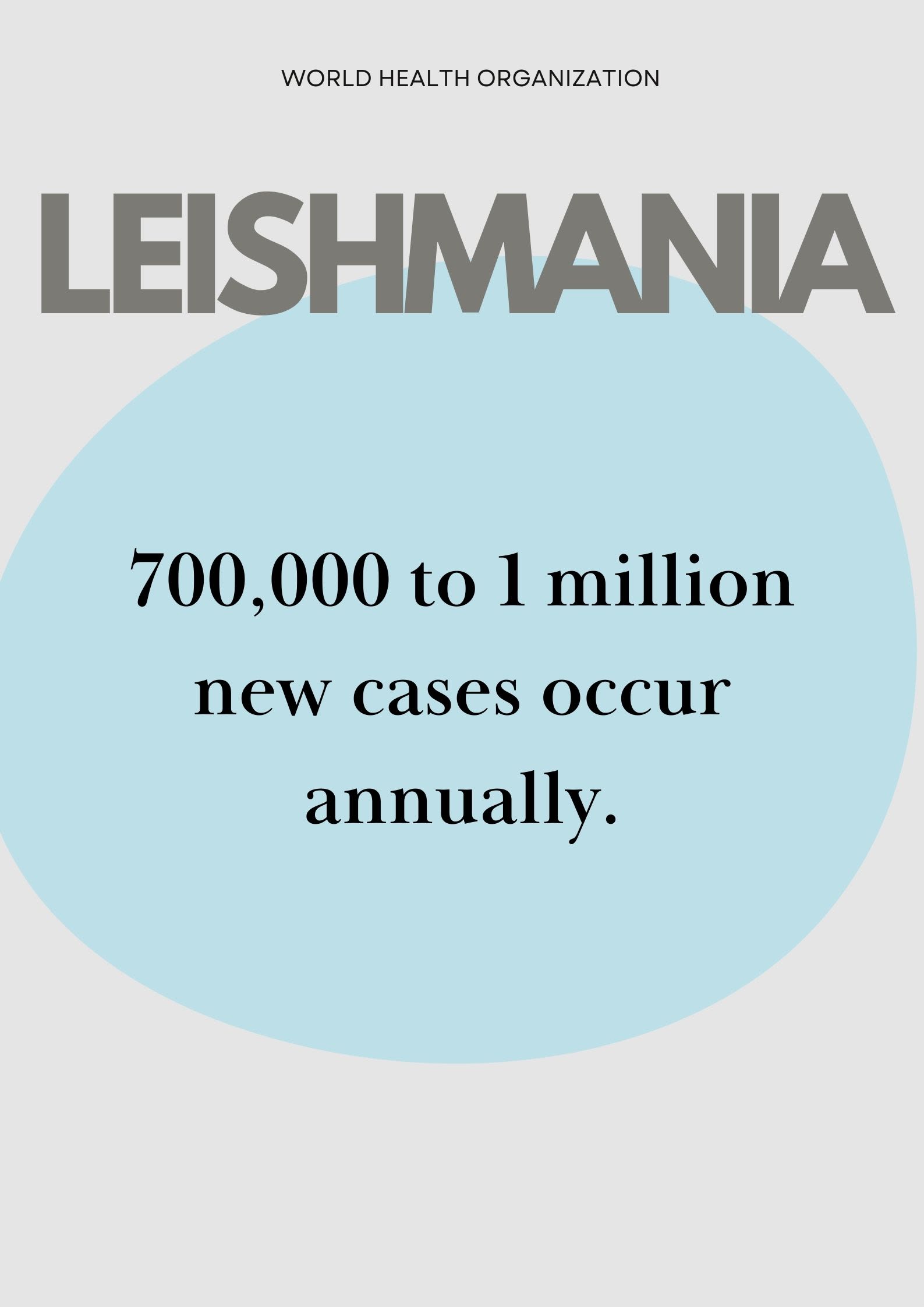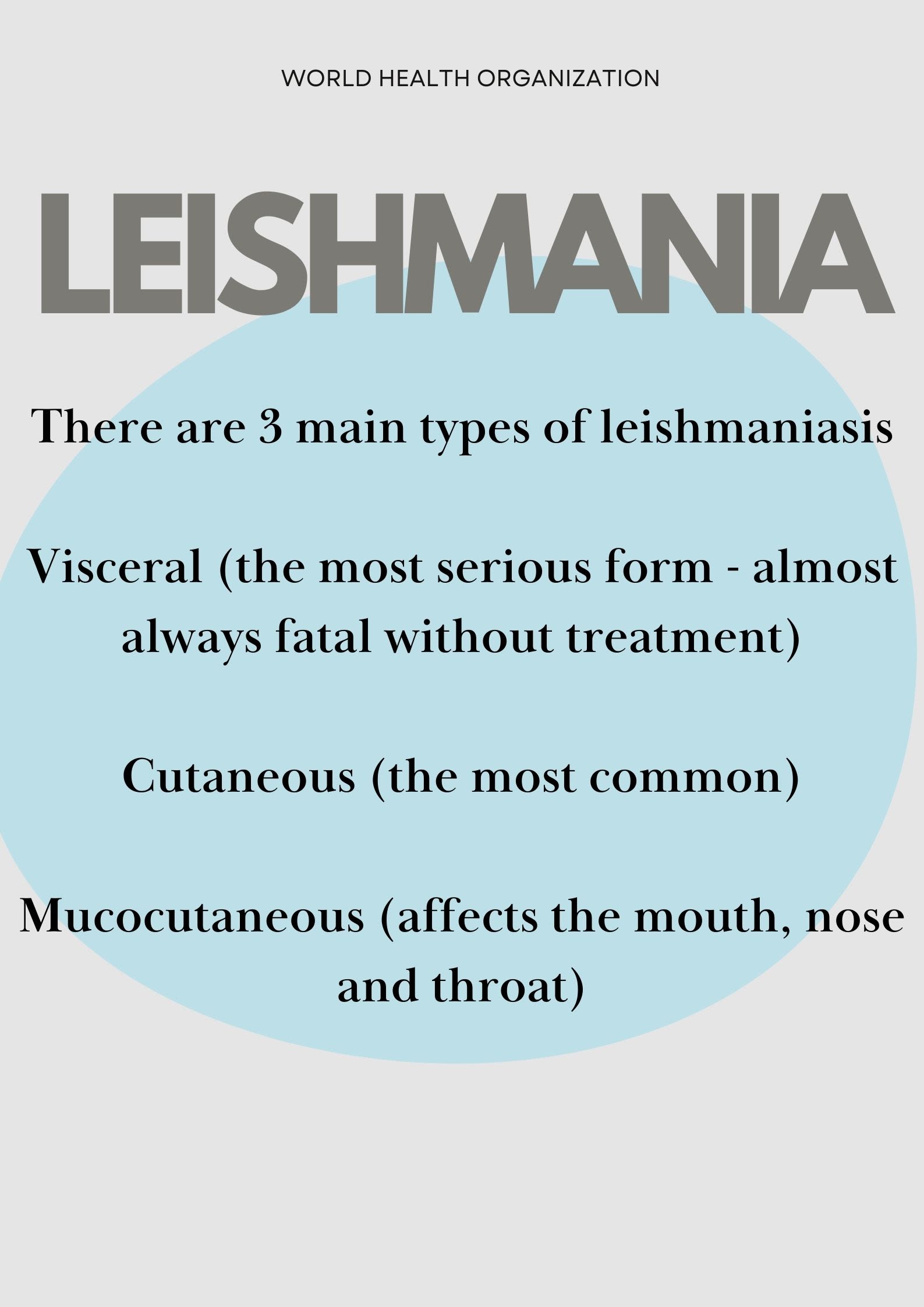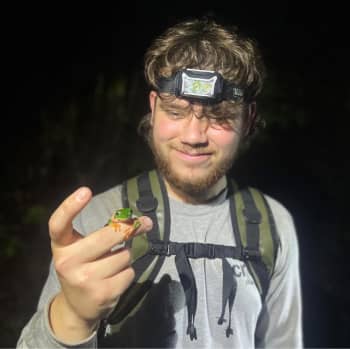The parasite of the poor : Free health care kept me alive through Leishmania
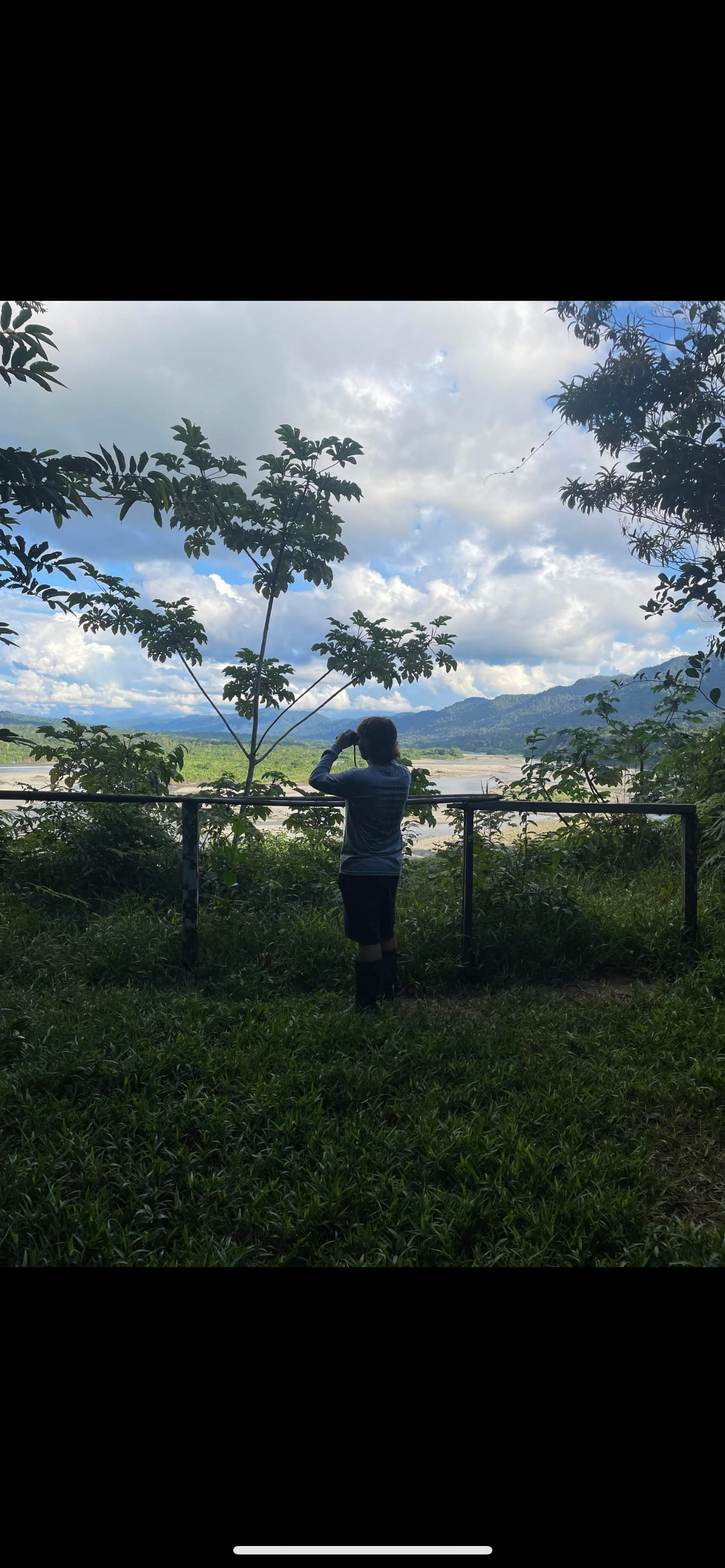
22-year-old Ruairi Overy-Hennesy, a self-proclaimed animal lover, has always known what he wanted to do with his life.
From studying animal management in college to pursuing a degree in Ecology and Wildlife Conservation, Ruairi’s path has always led him back to the untamed beauty of thick jungles and flowing rivers.
There has never been any doubt about his career choice and on the 18th of June 2023, he decided to follow this calling by embarking on the adventure of a lifetime.
Five weeks of research in the heart of Manu National Park in Southeastern Peru.
When Ruairi started this bucket-list journey, he had no idea he'd come back with a life-threatening illness. "Two weeks after I returned, I saw this tiny hole in my hand. At the time, my friend had a botfly" (a parasite that lays its eggs on mammals, and once those eggs hatch, they burrow into the skin).
Although botflies cause irritation and swelling, they are usually harmless in the long run, in fact, Ruairi thought it was “Cool” but as the hole grew larger and Ruairi started to feel unwell in himself, he realized, it was far more serious.
“Things just kept getting worse, the hole kept getting bigger” in October 2023, after much pleading from his friends, He finally sought medical attention.
His GP in Bournemouth first mistook the wound for an infection “It kept getting worse, I went through 7 or 8 antibiotics and none of them were working”.
Ruairi’s condition continued to deteriorate, and on a visit to his family he visited Queen Elizabeth the Queen Mother hospital in Margate “They ran tests and found out I had a staph infection, it turned out that wasn’t the main issue, that just came along with having an open wound from the [then undiagnosed] leishmaniasis”
A different type of insect was the cause for all this concern, Ruairi was bitten by a sandfly that hosted the disease.
As time wore on, Ruairi’s hand worsened, demanding almost daily visits to the doctor to tend to the wound.
Credit : Ruairi Overy-Hennesy
Credit : Ruairi Overy-Hennesy
Credit : Ruairi Overy-Hennesy
Credit : Ruairi Overy-Hennesy
Credit : Ruairi Overy-Hennesy
Credit : Ruairi Overy-Hennesy
Finally, his primary GP secured him an appointment at Poole Hospital. “The scheduled appointment was a year away,” Ruairi recalled. “The doctor just looked at me and said, ‘You will be dead; you will have no hand left.’” Realizing the gravity of Ruairi's situation, the GP contacted Salisbury Hospital, explaining that it was an emergency.
His hand at this stage was unrecognizable “You could almost see the bone, it looked heavily infected, it had a horrible smell, it was rotting away, the feeling in my hand was going”.
Credit :Ruairi Overy-Hennesy
Credit :Ruairi Overy-Hennesy
Salisbury Hospital set up an appointment for the next day for an urgent surgical clean and a biopsy. When Ruairi inquired about the possible condition, the responses ranged from leprosy to skin cancer.
The return of the biopsy confirmed it was neither of these things but instead a diagnosis that initially brought him relief, he had Cutaneous leishmaniasis.
With a clear answer to his hand’s deterioration, treatment began.
The following day, Ruairi was sent to Southampton Hospital to initiate the necessary therapies.
Credit : Ruairi Overy-Hennesy
Credit : Ruairi Overy-Hennesy
Credit: Ruairi Overy-Hennesy
Credit: Ruairi Overy-Hennesy
Credit: Ruairi Overy-Hennesy
Credit: Ruairi Overy-Hennesy
Treatments
Treatment for a tropical disease that has no cure was never going to be easy, Ruairi found this out the hard way with the first medication leading him into Stage 3 Acute Kidney Injury (AKI).
“I remember when I first went through treatment, the second day I was lounging around the house, I was really cold, really tired, and that night I remember I didn’t know what was wrong with me I just kept crying, I was in pain, I was just so tired. The next I was told I had signs of kidney failure, that feeling is so hard to describe my kidney function was seven times worse than it should’ve been.”
Due to such a severe reaction the treatment had to be phased, stopping and starting the process to allow his body to recover after each dose and on completion it was clear to both Ruairi and the medical professionals that his condition was not improving.
Created Via Canva
Created Via Canva
The next step in Ruairi’s journey was to start a new treatment, “it was a very old, expensive treatment, banned in a lot of Europe, you have to get permits to have it in, it’s called Meglumine, it's actually used to treat dogs with Leishmaniasis in South America” He laughs.
Ruairi had to have 21 doses of this new treatment, understandably apprehensive after he previous experience.
He remained in hospital for most of this time and on completion of the Meglumine his wound began to heal, and there was no sign of further organ failure.
Despite this positive result, the journey has only just began for this Bournemouth explorer : “There is no evidence of Leishmaniasis being curable, it can relapse at any point, that’s scary, there's treatment but not cure.”
“You have to be really careful and keep monitoring yourself for the rest of your life. it’s quite terrifying, it left some pretty Narly scars”.
“I’ve got to be monitored for the rest of my life, for when it does come back and when it does relapse.”
Created Via Canva
Created Via Canva
“I am so lucky to have free health care, not everyone has that luxury, it is called the parasite of the poor because that’s who it affects the most,” Ruairi acknowledged: “There's not enough education around the world, and there's not enough money being raised to help these people out, I’m one of the lucky ones who have free health care".
Created Via Canva
Created Via Canva
